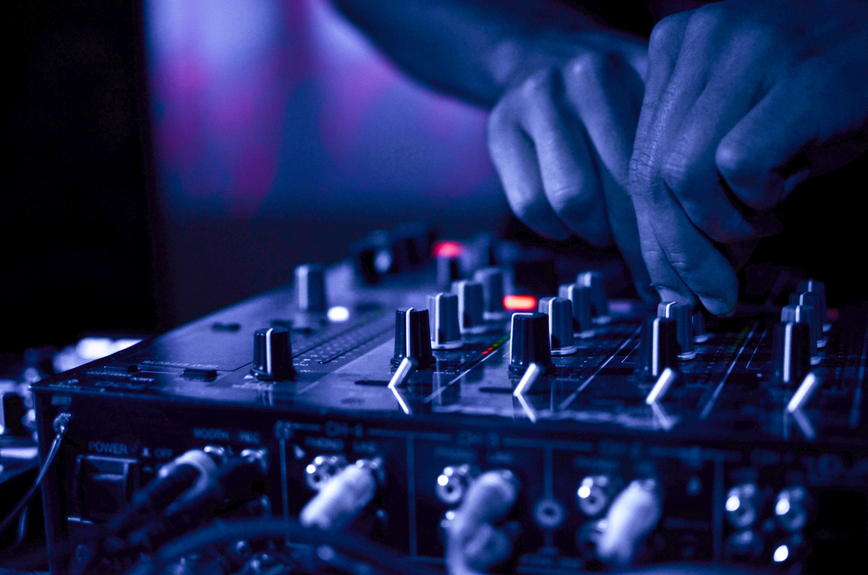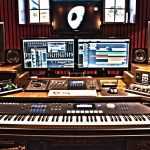16
Mar
2015
Audio Engineering at its best: 8 Great Mixing Tips!

Reading Time: 5 minutes
Audio Engineering as an Art Form!
Written by: Jordan Chia
Today, anyone with a laptop and a few recording microphones has all the tools they need to record, produce, and mix music and create their own recording haven. The home recording studio revolution is here. But with the ever increasing (and often overwhelming) choices of EQs, compressors and load of other plugins, how do we put them together to make a great sounding mix? With increasing demands on sound quality, audio engineering is essential to get your track to stand out from the masses. Here are some tips to help you improve in your mixing process.
1) Are your ingredients fresh?

Making a fresh dish is impossible without fresh ingredients. Likewise, in audio engineering, if you start out with badly recorded tracks containing hiss, phasing problems, room reflections, you are going to have a harder time trying to make anything sound good. So rule of thumb, rather than pulling your hair out when it’s too late, record your audio well. Use a good recording microphone. Record in a soundproof room and do the relevant acoustic treatment if you can. Otherwise, record somewhere else if you need to. Turn off that noisy air-con. DO NOT fix things in the mix.
2) Use your ears, not your eyes
You are doing audio engineering right? So stop using your eyes! Use your ears. Humans suffer from placebo effect from time to time. That is, our brains can make us think something sounds good just because we are getting cool visual feedback. Next time, try using that EQ plugin without the curve and listen. Very carefully. What REALLY needs to be boosted or cut? Did adding that compressor improve anything? Let our ears make the final call, not the user interface. The best mix engineers in the world rely mainly on a set of objective ears.
3) Do not be a sonic narcissist
Narcissus fell in love with his own image after staring at it for too long. Likewise, a mix engineer can fall in love with his own work and fail to realize serious mistakes after listening to it too much. Audio engineering is an art – art requires a clear mind to make critical aesthetic judgments. So take a break from time to time, and always keep a fresh ear when mixing. Successful audio engineering requires constant improvement.
4) Prioritize the elements
Some things are more important than others in a mix. For example, that shaker might sound really interesting, but are we mixing a shaker solo piece? If not, give priority to the most important elements. In most pop music, make sure that the kick drum, bass, snare and vocal are sitting well, muting all other elements. If you can get all of them to sound good together, you have basically mixed half the song. Bring in the other elements after that. If there are no drums, the vocals can afford to fill out more frequency space and sound bigger. Above all, the primary goal of an audio engineer is BALANCE.
5) It is not how expensive your tools are, it’s how you use it

We can have the most expensive plugin at our disposal, but it is how we use it that matters. We are doing audio engineering here, not running a music store. Stop acquiring gear or plugins while not having the time to learn what we already have. Focus on practicing a few effective tools well at any one time. Great mixes have been made with the simplest of gear. Study and use the plugins that come with your sequencer of choice – abuse them if you have to. Once you grow out of them, you will know their limitations and understand the reasons why you are buying that new EQ plugin or Tape Saturator. Also, as mentioned earlier, using a good recording microphone in an ideal environment at the tracking stage is always better than trying to fix it with plugins. In audio engineering, the best audio usually requires minimal treatment.
6) Listen to other people’s work
It is all too easy to get self-absorbed and start justifying our own work. Audio engineering depends heavily on context. We need to stop for a moment and listen to the big guys on the block. What makes their mix sonically effective, for that specific genre? Why did this mix engineer compress his snare in this manner? Form your own opinions and tastes, collect high quality records of great mix engineers and constantly compare your own work to theirs when mixing. Spend time getting your kick drum to sound in the same ballpark as theirs, your vocals sounding as full if not better. Ask yourself why if you fail, and learn ways to achieve similar or superior results. Use those tricks and turn them into your own. It’s a long road ahead, and there is no end to learning.
7) Learn how to bring things down
It’s all too easy to demand more, more and more, and boost anything and everything. Before you know it, every track is clipping and we have a fuzzed out mess. Instead of only boosting overall levels and EQ, try bringing everything to a lower volume, and be selective about boosting frequencies. Cut out the low end at 20 Hz or even 60 Hz for tracks that are not the kick drum or bass. Scoop out frequencies in the piano track to make space for the snare. Don’t forget to do everything in moderation. In audio engineering Balance is all about compromise. If every element takes up an ideal sonic space, it is easier for the whole track to be louder and have more impact, since there is less competition in the same frequency space. Play your mix at a lower volume as well. You may be surprised at what elements stick out too much. Precision is key to effective audio engineering, so keep training your ears.
8) Listen with different speakers
The mix might be rocking in your headphones, but putting it on laptop speakers could reveal a whole different truth. Likewise mixing with only reference monitors can smear out certain details that might show up when listening to headphones. Therefore, check your mixes on different speakers – on the stereo, portable Bluetooth speakers. Anything really. A huge part of audio engineering is really tweaking that piece of music to sound good anywhere. Pop in that CD the next time your buddy gives you a lift in his car.
Conclusion
Audio engineering and mixing itself is both a science and art in equal measure. There is no one perfect setting for every song – every mix is unique. Continue to improve your mixing skills, precision and the ability to listen critically – you’ll be on your way to making your next mix sounding better than your last.
Do you agree with these tips? Let us know your opinion and if you want to check a private recording studio give a look at this project!
And follow us on twitter for the hottest news about home recording studios and much more!





